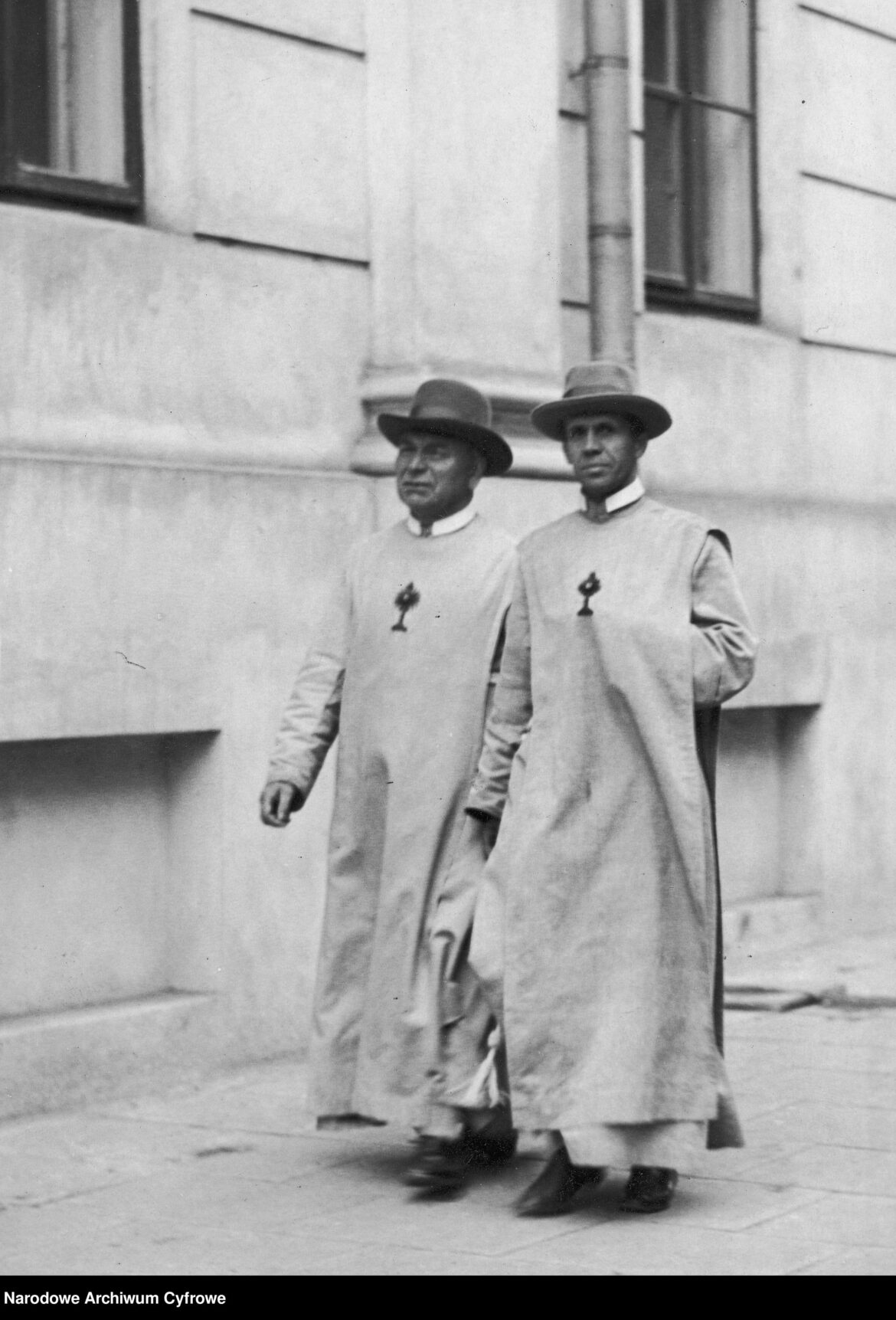Maravitism is a Christian, exclusively Polish religion. Its origins go back to the Capuchin friar Honorat Koźmiński and the nun Maria Franciszka Kozłowska. After the January Uprising (1863), considering the anti-Catholic policy of Russia, Koźmiński began to organize secret religious congregations, called “hiding places”, and Kozłowska, after her revelations at the end of the 19th century, developed Maravitism into a separate and ultimately unrecognized religion by the Vatican.
During World War II, the Mariavites, living in the vicinity of Mińsk Mazowiecki, provided considerable support to Jews, although they remained a relatively small religious community of only 50,000 believers before 1939. They helped Jews from Jędrzejów, Wiśniewo and Cegłów.
In 1942, nun Makryna (Natalia Siuta), who lived alone in Jędrzejów, serving as the guardian and hostess of the Mariavite chapel, started cooperation with the Council to Aid Jews Żegota. She met with its activist Julian Grobelny (1893-1944) – the first chairman of Żegota. She helped the Jewish people by providing them with food and money. At that time, Grobelny lived under a false name in Cegłów, near the road leading to Jędrzejów. Makryna personally saved relatives of Prof. Ludwik Landau (1902-1944), whose “Chronicles of the Years of War and Occupation” published after the war were very popular among readers. She also saved Jan Himilsbach (1931-1988) – a popular naturshchik actor in Poland.
The Jews were helped also by Fr. Count Wawrzyniec Roztworowski in near Wiśniewo. There was a large and thriving Mariavite parish and a monastery. After the war, his son recalled: “Many times I saw the people giving food from the kitchen to Jews who came always so delicately, I remember it. They perfectly understood when to come, when it was safe to not to bring harm or risk to us”. Grobelny’s network operated here as well, and he visited this parish from time to time. Fr. Count Roztworowski was also sworn in the Home Army, and in the basement of his church, there was a hospital for local partisans. The Mariavite monastery in the nearby town of Cegłów had the same purpose for Jews and partisans.
Currently, about 25 thousand followers of Mariavitism live in Poland.





